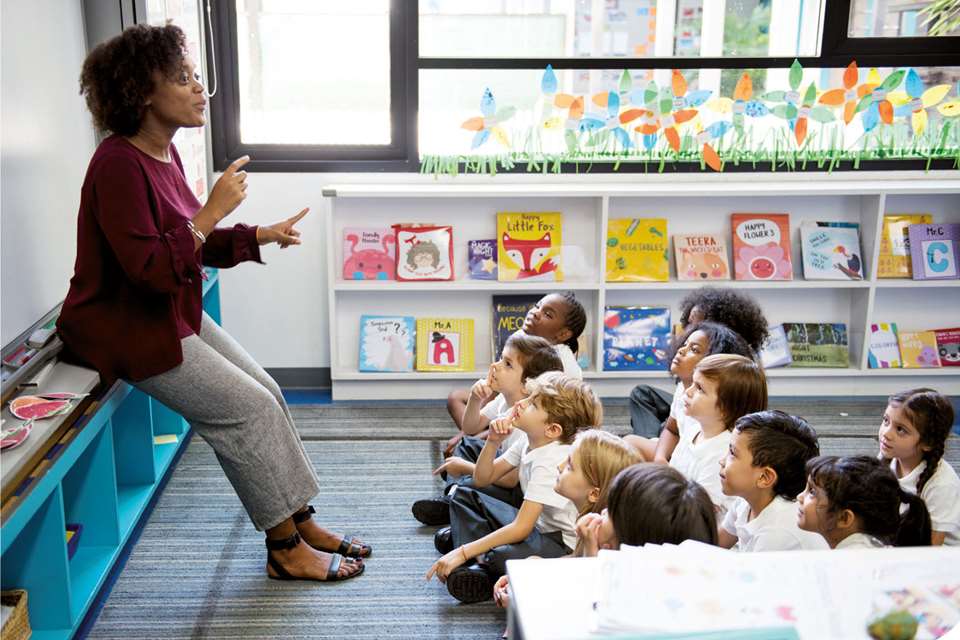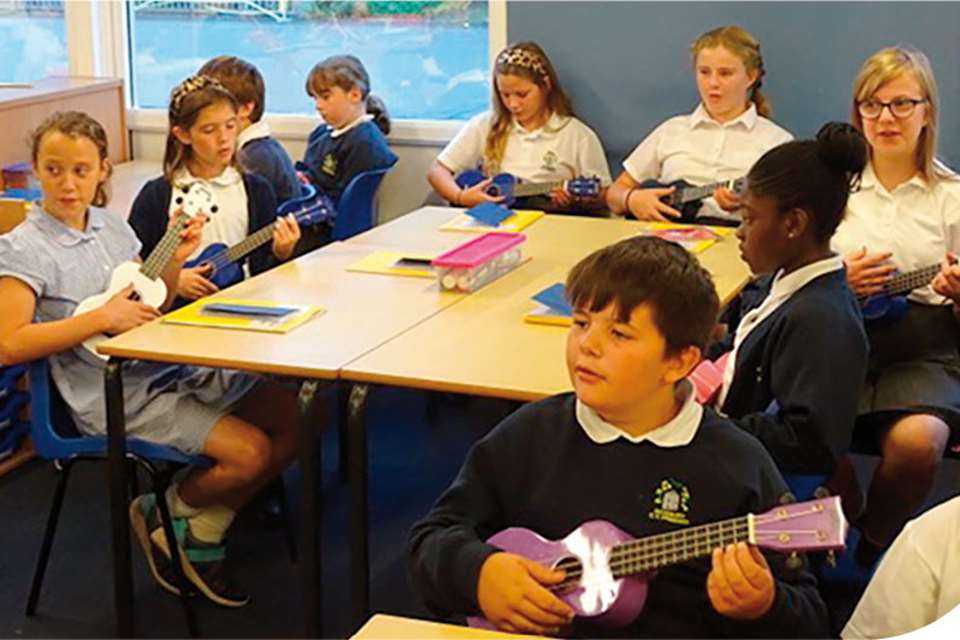Music teacher education column: Thumbs up, thumbs down
Rebecca Berkley
Saturday, January 1, 2022
In her second column on music teacher education, Rebecca Berkley, associate professor in music education at the University of Reading, updates us on her mission to provide general primary trainees with a grounding in music.

Maria/AdobeStock
At the start of term, I always ask general primary trainees learning to teach music as a foundation subject: ‘Who feels they are musical?’ and get about 25 per cent thumbs up (yes), 50 per cent thumbs sideways (maybe), and 25 per cent thumbs down (no). When I ask: ‘Who felt musical at the end of primary school?’ more thumbs go up. Almost everyone sang in assembly, in choir and in the school shows. They played classroom percussion, the recorder and took part in large-scale concerts run by the local music service at the local large venue.
However, when I ask: ‘Who felt musical at the end of KS3?’ more thumbs go down. Most trainees gave up music when they were in Year 8 or 9 in school because they didn't like it. Many report feeling that secondary school music teachers favoured other pupils who took instrumental music lessons, and that they were only taught to play instruments at a basic level. Hardly any of them did any singing in secondary school, so do not know what their adult voices sound like. They felt unskilled in music at KS3: ‘We got sent to the practice rooms to do music composing, but no one ever told us what to do.’
Fast-forward to their teacher training, and many feel uncertain about having to teach music. One issue that comes up repeatedly is a lack of musical literacy. Whereas most trainee teachers feel they could become sufficiently literate in other subjects to be able to teach them, many do not feel that this could be possible in music. They feel they lack a grounding in how concepts and ideas in music are represented in musical technical language and notation systems, and this stops them from being confident to lead music making in schools. Their previous schooling convinced them that music literacy was, literally, a closed book.
I have a small window of time in university to change this perception. If trainees don't teach music on placement, they probably won't teach music when they are qualified and yet more general primary teachers will enter the profession thinking that music is a subject they can't do. I am determined that trainees should start their placements knowing how to lead practical musical lessons singing, performing, and creating music with children.
I took the British Kodály Academy Certificate of Professional Practice as my lockdown project. This is an inclusive, practical, creative and play-based approach to teaching musicianship to children from Early Years right through to A Level and beyond. Musical concepts are taught through games and activities where children unconsciously learn musical sounds and ideas aurally and through movement and action, before being made aware of the technical terms and notations which represent the musical concept, and practising these in inventive, fun and motivating creative music making.
Inspired by this, I am trialling a teacher training programme so that general primary trainees learn as if they were Year 3–4 children while also investigating the pedagogic principals of this teaching. We have explored how teaching pitch awareness through solfa and beat and rhythm awareness through rhythm syllables has many links to teaching reading through phonics. Trainees have explored paired and group work in problem solving and investigations using manipulatives for the children to move to music, for example using hoops laid out for children to walk the beat on the floor, and ‘writing’ rhythms using lolly sticks. Trainees have explored an inclusive approach to teaching music, offering practical and creative work to all children.
The first part of this training in the autumn term went well. Mid-module feedback was very positive. In answer to the question: ‘What have you found most interesting about teaching music in this module?’ answers included:
- ‘To find out how music is truly meant to be taught. It's nothing like what I experienced in my own education or anything I've observed.’
- ‘How easy it can be. But also, how effective it can be.’
- ‘Something that looks very complicated and difficult to understand can actually been broken down into really simple and easy to understand steps.’
Now, I need to see what students will do on placement, because that's where the real test of university training lies. Hopefully, we will see more thumbs up in music from the trainee teachers, the schools, and the children.



